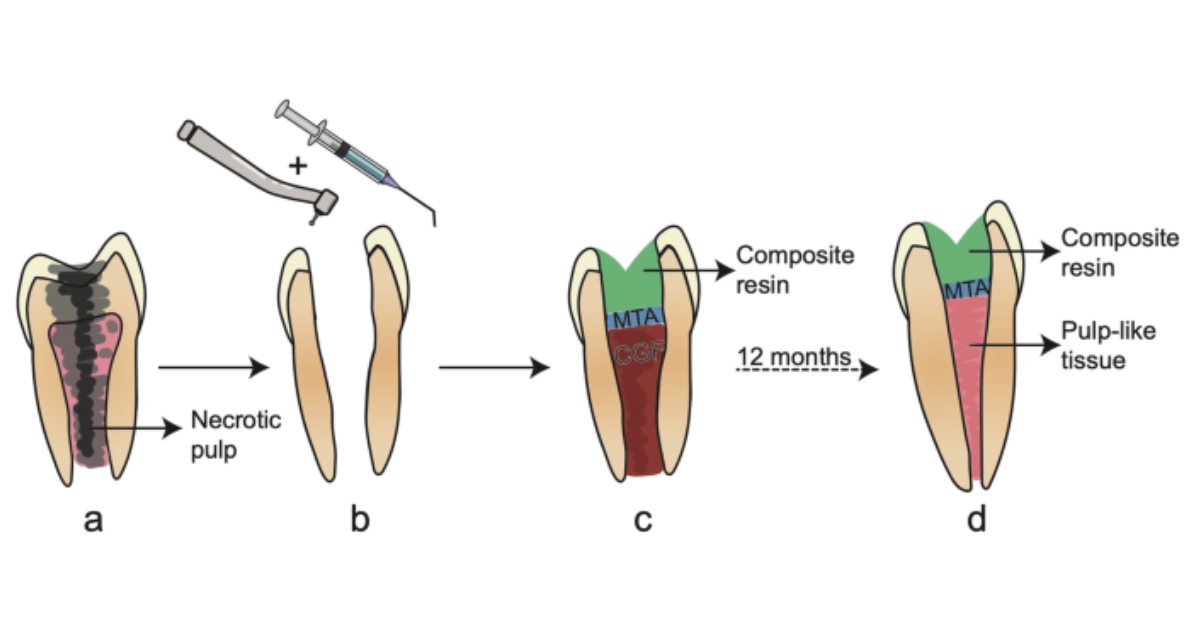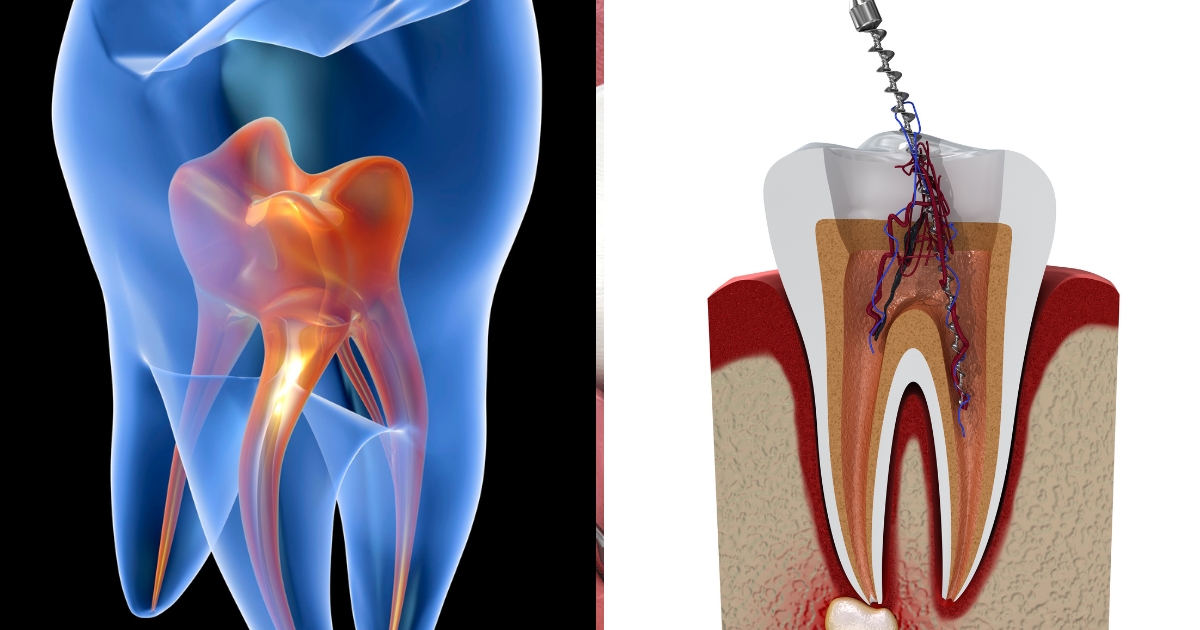Call Us Today 817-737-7668

Pulp regeneration is a groundbreaking procedure in endodontics aimed at revitalizing damaged tooth pulp and promoting natural healing. If you’re considering this innovative treatment, understanding how to prepare effectively can make a significant difference in the outcome. Here’s what you need to know to ensure a successful pulp regeneration procedure and optimal recovery.
Understanding Pulp Regeneration
Pulp regeneration, also known as regenerative endodontics, involves stimulating the growth of new pulp tissue in a tooth that has experienced damage or infection. This procedure helps save the tooth by restoring its vitality and functionality. The process is particularly valuable for young patients with developing teeth but can be beneficial for adults as well.
Steps To Prepare for Pulp Regeneration
- Consult with an Endodontist- Schedule a consultation with a qualified endodontist in Dallas who specializes in pulp regeneration. An expert will assess your tooth’s condition and confirm if you are a suitable candidate for the procedure. They will provide a detailed treatment plan and answer any questions you might have.
- Understand the Procedure- Familiarize yourself with the pulp regeneration process. This typically involves cleaning the root canals, applying a regenerative material, and allowing the tooth to heal. Any tension can be reduced by being aware of what to anticipate. and prepare you mentally for the procedure.
- Follow Pre-Treatment Instructions- Your endodontist will provide specific pre-treatment instructions to follow. This may include:
Oral Hygiene: Maintain excellent oral hygiene to minimize the risk of infection.
Dietary Adjustments: Don’t go for any hard or sticky food that could potentially exacerbate dental issues before the procedure.
Medication: Take any prescribed medications or antibiotics as directed.
- Prepare for the Day of the Procedure- On the day of your pulp regeneration treatment:
Arrive Early: Arrive at the dental office before your planned appointment to finish any documentation that needs to be completed.
Comfortable Clothing: Wear comfortable clothing and bring a friend or family member if you prefer support.
- Post-Procedure Care
– After the procedure, follow your endodontist’s post-treatment care instructions, which may include:
– Rest and Recovery: Allow time for rest and avoid strenuous activities immediately after the procedure.
– Pain Management: Use over-the-counter pain relievers as needed and follow any prescribed pain management guidelines.
– Follow-Up Appointments: Attend all visits for follow-up to track the healing process and guarantee the effectiveness of the regeneration.
What To Expect After Pulp Regeneration?
- Healing Time: Healing time varies based on individual health and the complexity of the procedure. Typically, you should expect some discomfort and swelling initially, which should subside within a few days.
- Success Rate: Pulp regeneration has a high success rate, especially when performed by a skilled endodontist. The procedure helps maintain the tooth’s functionality and can significantly extend its lifespan.
- Long-Term Care: Continue with good oral hygiene practices and regular dental check-ups to ensure the long-term success of the regenerated pulp. Your endodontist may recommend specific care routines to follow.
Advantages of Pulp Regeneration
- Preserves Natural Teeth: Pulp regeneration allows you to keep your natural tooth, avoiding the need for more invasive treatments like implants or bridges.
- Promotes Natural Healing: The procedure encourages the natural growth of pulp tissue, which supports the tooth’s health and function.
- Minimally Invasive: Compared to traditional root canals, pulp regeneration is less invasive and typically involves a quicker recovery.
- Cost-Effective: Investing in pulp regeneration can be more cost-effective in the long run, as it prevents the need for more extensive dental procedures.
Insurance and Financial Considerations
Before proceeding with pulp regeneration, it’s important to understand your insurance coverage and any potential out-of-pocket costs. Many dental insurance plans may cover part of the cost of pulp regeneration, but this varies by provider and plan. Speak with your dental office’s financial coordinator to explore payment options, financing plans, and any insurance benefits that may apply to your treatment.
So, preparing for pulp regeneration in Dallas involves understanding the procedure, following pre-treatment instructions, and ensuring proper post-treatment care. By consulting with a qualified endodontist in Dallas and adhering to these preparation tips, you can enhance the success of your pulp regeneration treatment.
Maintaining your natural teeth through pulp regeneration not only supports your oral health but also provides long-term benefits, avoiding more complex treatments in the future. If you’re considering pulp regeneration, reach out for professional help to explore your options and begin the journey toward a healthier smile.
Frequently Asked Questions On Pulp Regeneration!
Can pulp regeneration reverse the effects of dental trauma?
- Pulp regeneration has the potential to repair damaged pulp tissue following dental trauma, especially in younger patients. The success of the procedure depends on the extent of the trauma and the timing of the intervention.
Is pulp regeneration a viable option for elderly patients with age-related pulp degeneration?
- While pulp regeneration is generally more successful in younger patients, it may still be an option for elderly patients with age-related pulp degeneration, depending on the overall condition of the tooth and the patient’s health.
How does the success rate of pulp regeneration compare to traditional root canal therapy?
- While still a developing field, pulp regeneration offers the potential for higher long-term success rates in preserving tooth vitality compared to traditional root canal therapy, especially in younger patients.
Are there any genetic factors that influence the success of pulp regeneration?
- Emerging research suggests that genetic factors, such as variations in growth factors and immune responses, may impact the success of pulp regeneration. Personalized treatment approaches could be developed based on these factors.
Can pulp regeneration help if the tooth’s root is not fully developed?
- Yes, pulp regeneration is especially beneficial for teeth with incomplete root development. This procedure is often used in younger patients where the roots of the teeth are still growing.
For mature teeth with fully developed roots, other treatments like traditional root canal therapy are typically more appropriate. Consulting with an endodontist will provide guidance on whether pulp regeneration is suitable for your specific case.



